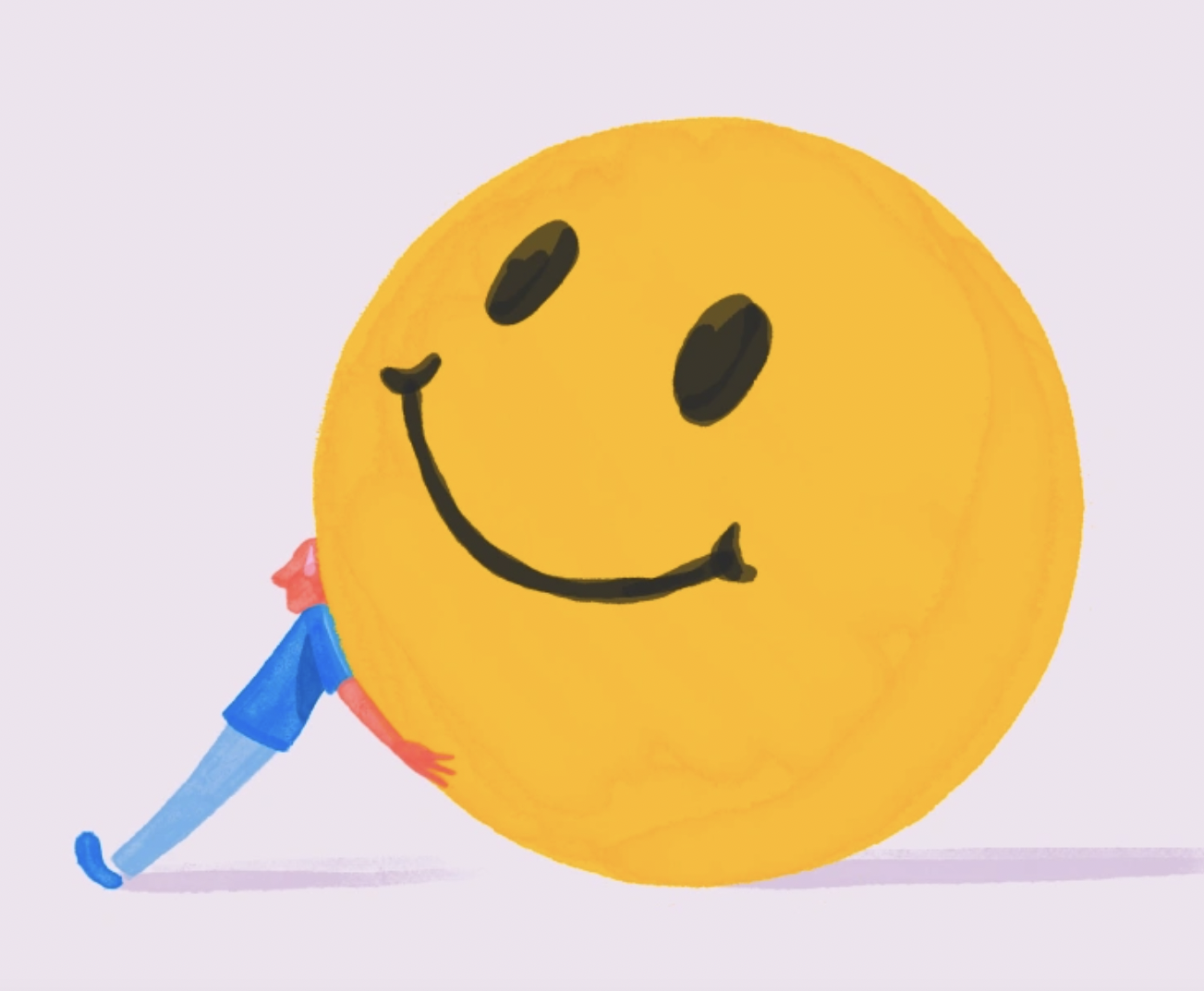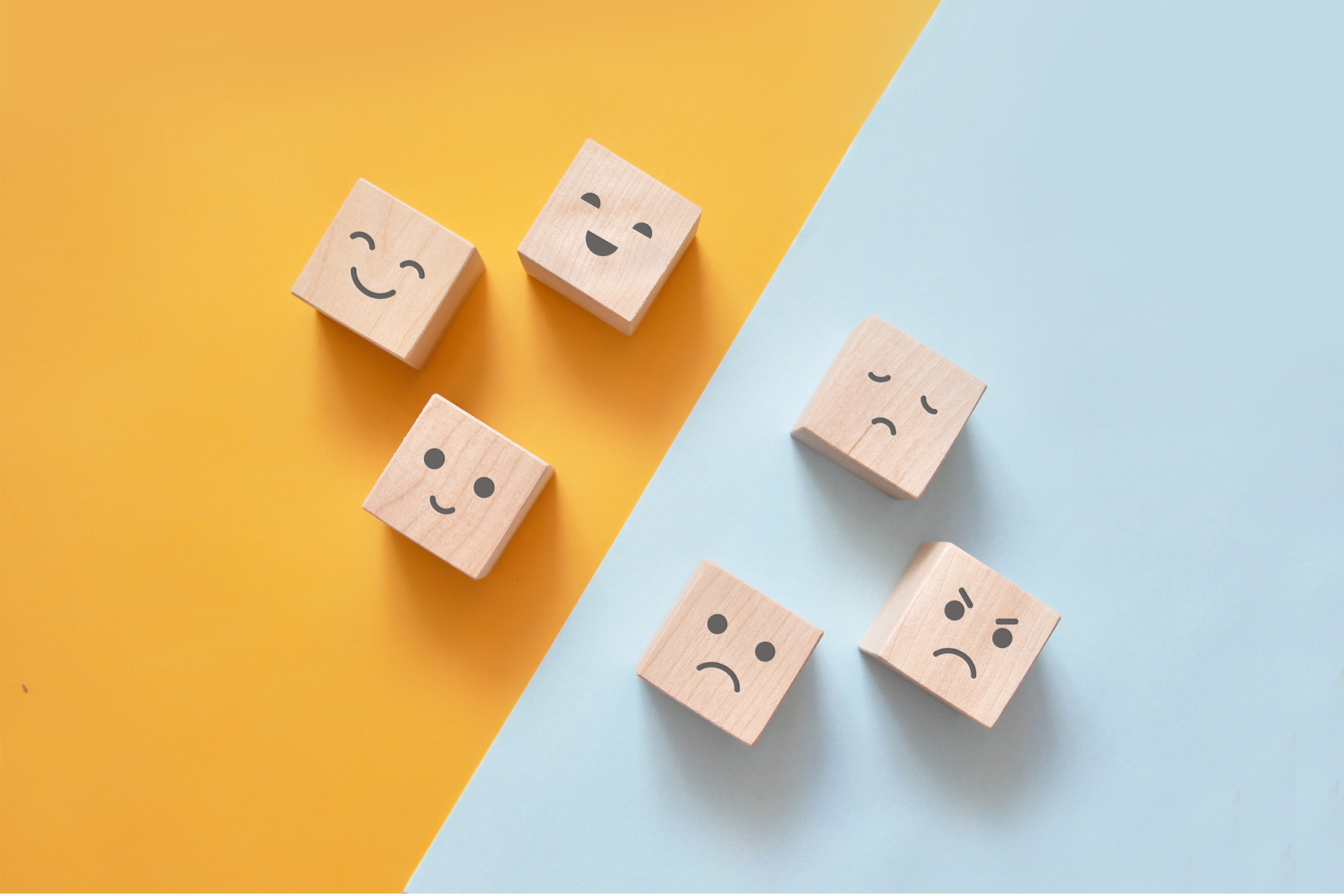Toxic Positivity: The dark side of positivity
From a young age, we’re taught to just stay positive! To look on the bright side! To keep on smiling! To cheer up! To have no bad days!
Having a positive attitude and mindset is crucial for our well-being and happiness in daily life. But there is such a thing as too much positivity. It can become a band-aid solution, or a crutch or a way of suppressing — even eliminating — your authentic emotions. This unhealthy overuse of positivity can express itself as “toxic positivity.”
What is toxic positivity, and why is it bad?
A positive attitude is something worth striving for in much of life.
Of course, optimism and positivity is good. According to Mayo Clinic, the health benefits of optimism can include an increased life span, reduced risk of death from conditions including cardiovascular disease, as well as lower rates of depression, distress and pain. Positive thinking makes us more grateful, more resilient, improves our well-being, and overall makes life so much better.
Positivity is also certainly a coping mechanism, one that allows us to get through life’s difficult moments. But there’s such a thing as too much. Toxic positivity is the manifestation of that — the overuse of positivity as a response to hardships.
It can take different forms.
Toxic positivity can look like not allowing yourself to experience difficult emotions. Rather than letting yourself feel shame, or anger, or grief, you may push aside or bury those emotions — and instead tell yourself that everything is fine, or even great! Not only are you suppressing your authentic internal emotions and responses to things that are bad, but also you are denying your own reality. There are times when, well, things are just plain bad.
For example, during the pandemic, many people forced themselves to focus on the bright side. Some were also told to use the time productively or find silver linings amidst all of the bad. This is a helpful, even necessary coping mechanism, sometimes. But over time, this mindset and perspective may minimize the very real sense of loss of anxiety that came during the pandemic. It’s okay to admit to yourself and others that things are tough!
Toxic positivity also avoids challenges and difficult, uncomfortable thoughts. Sometimes, though, confronting those feelings is just what you need to process the situation, address the issue’s roots and find a way through it.
Toxic positivity can act as a quick band-aid solution. Processing negative emotions takes work, not a temporary fix. Silencing one’s feelings may lead you to ignore very serious problems that require help. It can also act as a barrier preventing you from seeking necessary support — whether that’s turning to a trusted friend or family member, or seeking professional help.
You can also bring toxic positivity to your friends. It’s not just something that happens internally within yourself.
When your friend tells you about something difficult they’re going through — a loss, a failure, an insecurity — you may find yourself telling them to cheer up or keep a positive attitude. Or maybe you’re even telling them that it’s not all that bad after all. Or that things could be worse.
This inclination of yours to say this may come with only the best intentions, or maybe the confusion of not knowing what to say.
But, in doing so, you may be dismissing their feelings. This can also look like “emotional invalidation,” where invalidating another person’s feelings can cause them pain and feelings of isolation and manipulation.
Make sure you think twice before telling someone that “it could be worse” or that “everything happens for a reason” or “just look on the bright side.” Instead, be mindful to let others feel things and share their feelings. You can also ask them what they need in the moment, or even just be an open listener.
Here are some things you can do instead:
Yes, you could spin many bad things into a positive, and to look at every silver lining, but you may be avoiding the difficulties of reality. Instead, it is better to balance a positive attitude with a recognition of all the genuine emotions you are feeling, even the bad ones. Remember, too, that these many seemingly conflicting feelings can coexist.
Remind yourself that difficult or negative emotions are completely normal. It’s part of being a human. Don’t shame yourself or guilt yourself into not feeling them.
Once you allow yourself to feel your authentic emotions, you can begin taking steps to understand the issue. Exploring your negative emotions, rather than stifling them, can allow you to listen to yourself and what is causing those feelings. In doing so, you’ll also learn more about yourself and gain more resilience in times of hardship.
Importantly and ultimately, being real with your emotions allows you to take necessary steps to address the negative feelings and issues, and seek help. This might include starting to talk with someone else, from a family member to a therapist.
***
At Georgetown Psychology, we have trained therapists who are able to help you through issues, including negative emotions, toxic positivity, and becoming more resilient.







